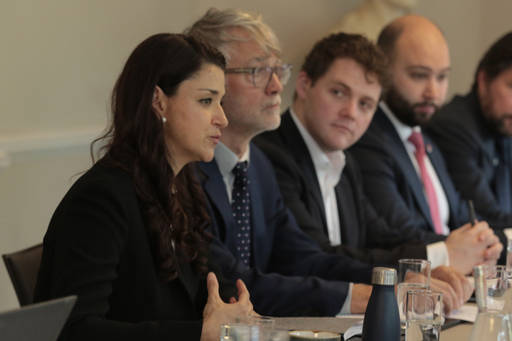Financial Crime Policy
This programme focuses on the development and implementation of effective anti-financial crime policies and regulation both in the UK and internationally.
As countries look ahead to the fifth round of mutual evaluations by the Financial Action Task Force (FATF), there are significant shifts in the global policy approach to tackling financial crime, including money laundering, fraud, terrorist financing and proliferation financing. The threat that financial crime poses to the global financial system is evolving and becoming ever-more resilient and multifaceted, driven by the emergence of new technologies. At the same time, the global response to illicit finance needs to drive inclusion and minimise the risk of unintended consequences.
Key areas of activity cover:
- The evolution of global anti-financial crime standards
- The UK’s response to economic crime
- Maintaining the integrity of the global financial system, including the FATF
- The role of new technologies in both enabling and detecting financial crime
Global Standards
Since the establishment of the FATF in 1989, countries have needed to implement its recommendations. These aim to improve the global response to money laundering, terrorist financing and proliferation financing. Our work is focused on global understanding of illicit finance threats and the way in which jurisdictions can best mitigate those risks and improve the recovery of criminal assets.

National Risk Assessments form the cornerstone of a country’s anti-money laundering, counterterrorist financing, and proliferation financing efforts.

Project CRAAFT (Collaboration, Research and Analysis Against the Financing of Terrorism) is an academic research and community-building initiative designed to build stronger, more coordinated counter terrorist financing (CTF) capacity across the EU and in its neighbourhood.
UK Economic Crime
The UK has often been described as an international hub for money laundering, providing a willing home for kleptocratic wealth and the proceeds of organised crime.
Our work focuses on the way in which financial crime manifests in the UK and the required policy and regulatory responses. It also considers the UK in a broader international context, including the need to build relationships with international partners and allies to tackle the global threat of illicit finance.
Financial Integrity
The global response to financial crime relies on the integrity of the financial system. Without a robust, inclusive and fair financial system, corruption thrives, and criminals are able to exploit vulnerable individuals and organisations. Increasingly, authoritarian states are seeking to use the global anti-financial crime system to crackdown on dissidents and further their own aims.
Our work explores the impact of anti-financial crime standards and processes, including FATF process, on financial inclusion and how these standards can also be abused. Our work also aims to empower grassroots civil society organisations and investigative journalists to hold their governments to account when it comes to tackling illicit finance.
New Technologies
Technology has changed the way in which state actors, organised criminals and terrorists obtain, launder and use illicit funds. Our work seeks to explore the impact of new technologies, both in facilitating illicit finance but also the potential benefits to law enforcement and the private sector in preventing and detecting financial crime.
Latest Publications
Access our latest publications and filter by topic, region and by project.
Loading results...


















